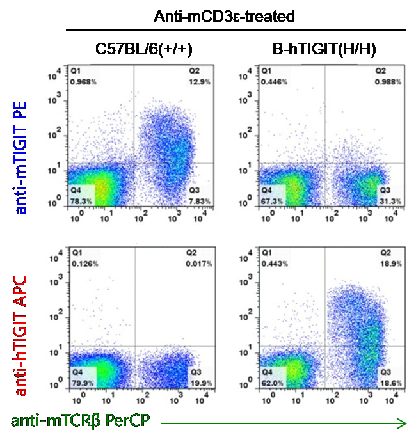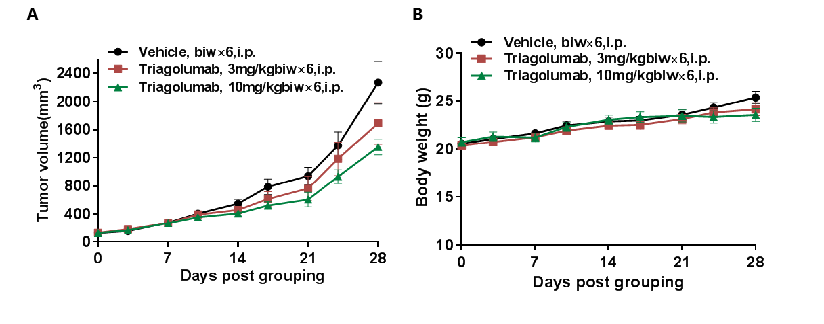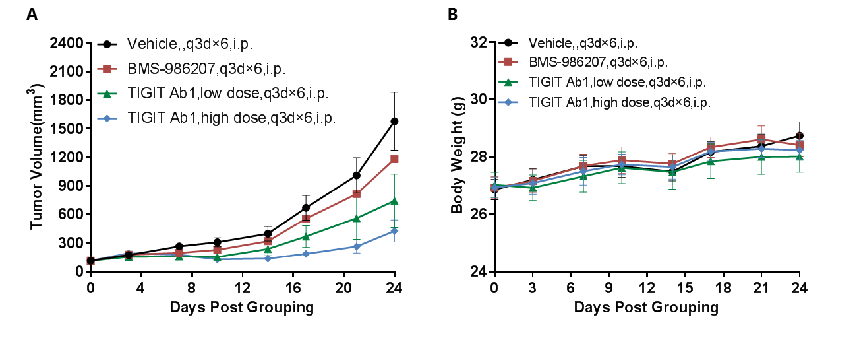| Strain Name |
C57BL/6-Tigittm1(TIGIT)Bcgen/Bcgen
|
Common Name | B-hTIGIT mice |
| Background | C57BL/6 | Catalog number | 110017 |
|
Related Genes |
TIGIT(T cell immunoreceptor with Ig and ITIM domains) | ||
|
NCBI Gene ID |
100043314 |
||
Protein expression analysis

Strain specific TIGIT expression analysis in homozygous B-hTIGIT mice by flow cytometry. Splenocytes were collected from WT and homozygous B-hTIGIT (H/H) mice stimulated with anti-CD3ε in vivo (7.5 µg/mice), and analyzed by flow cytometry with species-specific anti-TIGIT antibody. Mouse TIGIT was exclusively detected in WT mice. Human TIGIT were exclusively detected in homozygous B-hTIGIT mice (H/H) but not WT mice.

Antitumor activity of anti-human TIGIT antibodies in B-hTIGIT mice. (A) Anti-human TIGIT antibodies inhibited MC38 tumor growth in B-hTIGIT mice. Murine colon cancer MC38 cells (5ⅹ105) were subcutaneously implanted into homozygous B-hTIGIT mice (female, 8 week-old, n=6). Mice were grouped when tumor volume reached approximately 150±50 mm3, at which time they were treated with anti-human TIGIT antibodies with different doses and schedules indicated in panel (B) Body weight changes during treatment. As shown in panel A, anti-human TIGIT antibodies were efficacious in controlling tumor growth in B-hTIGIT mice, demonstrating that the B-hTIGIT mice provide a powerful preclinical model for in vivo evaluation of anti-human TIGIT antibodies. Values are expressed as mean ± SEM








